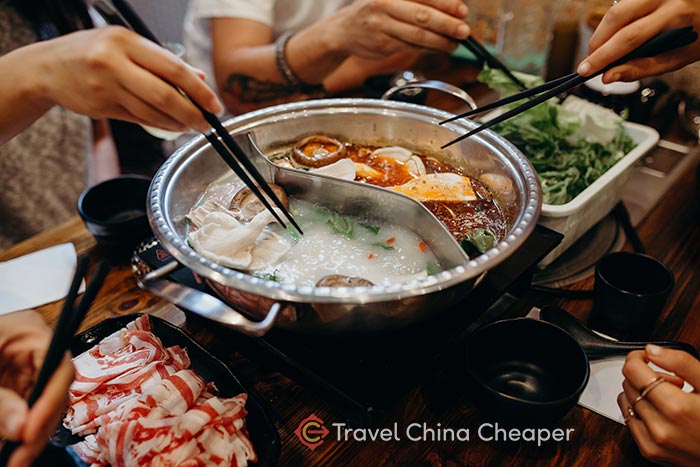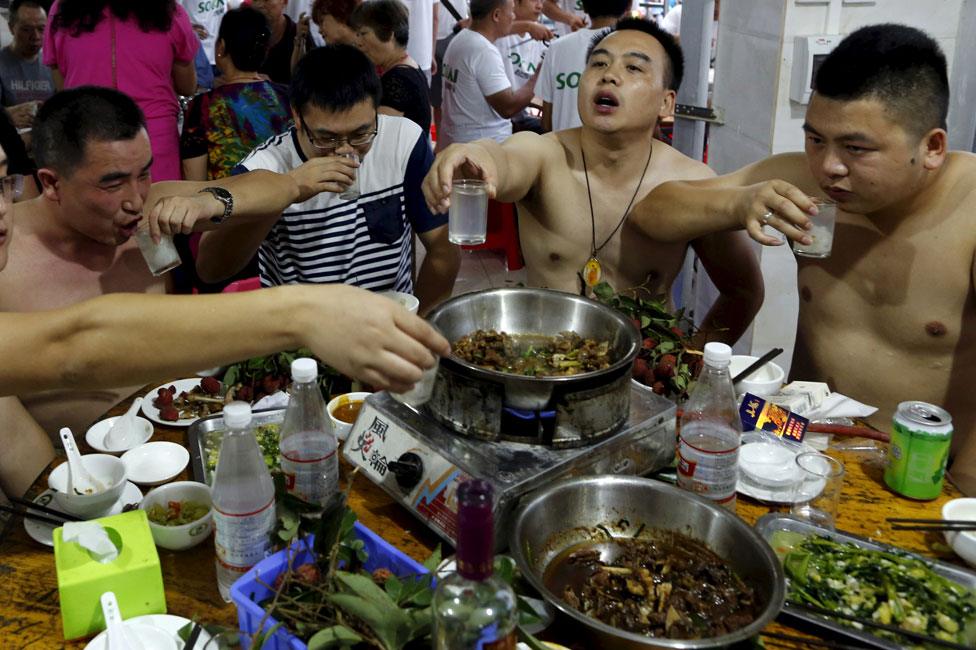1. Choose busy vendorsTip Choose vendors that have a long line and a high level of turnover. The freshest ingredients are most likely to be used.Pro High turnover indicates freshness and the popularity of locals.Cons: Waiting at the checkout can be a long and tedious process.
2. Observe Hygiene PracticesTips: Try not to touch food items with your hands if you're shopping at a vendor who does not use gloves or clean their stations.Pro: Lowers the risk of foodborne illness.Cons: Your options may be limited by high hygiene standards.
3. Avoid Uncooked FoodsFor a bacteria-free diet opt for foods cooked such as grilled Skewers.The benefit is that cooked foods are less likely to produce food poisoning.Cons: Limits your choices Some raw foods like sashimi or cold salads could be tempting.
4. Inspect IngredientsTIP: Take note of the appearance and smell of the food item. Fresh food should appear bright in color and not have an unpleasant odor.It assists you in avoiding poor-quality, spoiled and ineffective ingredients.Con: Being fresh can be difficult if you don't have previous experience.
5. Buy Boil or Bottled BeveragesBeware of tap water. Instead, choose bottled beverages, canned drinks and teas made with boiled or cooled water.Pro: Protects from waterborne diseases.Cons: Limited options, particularly at street vendors.
6. Start SmallTips: Check your body's reaction to new foods by consuming only a small portion at first.Benefits: Reduces the risk of severe digestive problems.Cons: You may not be able to satisfy your cravings when you discover the food tasty and healthy.
7. Avoid Ice in DrinksIce cubes can contain untreated tap water.Pro: Guards your water from contamination.Con: Can make your drinks a little less refreshing, particularly in hot weather.
8. Choose Items that are Freshly CookedTips Choose food you can watch being cooked in front of your eyes.Reduces the risk of contamination through prolonged exposure.Con: Food from the street that is prepared in advance may be irresistible or unavoidable.
9. Hand Sanitizers for CarryingMake use of wet wipes or hand soaps prior to eating if you're not able to wash your hands.Pro: Lowers the risk of transmitting bacteria from your hands onto your food.Con: You must carry extra items, which can be inconvenient.
10. Be Faithful to Your InstinctsNo matter how tempting something might appear when it looks or smells unpleasant, you should try to avoid it.Pro: It can help you avoid foods that could cause you to get sick.Con: Can lead to over-caution, which could cause you to miss out on real experiences.
Street Food in China: Pros and ConsCheap and delicious: Street food is often cheap and packed with authentic tastes.The convenience of vendors is that they are everywhere, making it easy to get an easy meal or snack.Cultural Experience: Eating in stalls along the streets is a way to immerse yourself in the local cuisine and customs.The variety of options can't be beat with everything from Jianbing (savory crepes that are savoury) and Chuan'r grilled skewers, the choice is endless.The Cons of Eating Street Food in ChinaHealth Concerns: Foodborne illness are a potential risk especially in less well-known vendors.Allergy Risks: The ingredients may not be disclosed, posing difficulties for people suffering from allergies.The language barrier may make it difficult to comprehend the ingredients or how they are made.Overeating temptation: The wide variety of foods can lead you to eat more than you should, which could upset your stomach.Enjoy China's street food culture in a healthy way by observing these safety precautions. Read the top uncover China food traditions for site info including a tour of China regional cuisine, regional Chinese cuisine highlights, taste your way through China, China culinary hotspots, top Chinese food experiences, Chinese food you must try, regional Chinese cuisine highlights, savor the flavors of China, explore China food scene, a culinary journey through China and more.

Top 10 Tips For Visiting Temples Of Fame And Perform Rituals
1. Be mindful of the rules and customs of your temple. Be sure to follow these rules, especially when entering sacred spaces or participating in rituals.Pro: Represents respect for the local culture and respect for the sacred space of the temple.Cons: Learning the rules in complex temples can be daunting.
2. Be respectful and quietTip: Maintain a respectful demeanor by keeping quiet during ceremonies or in the temple. Be careful not to talk too loudly or laughing.Pro: Creates an atmosphere of peace and reverence for worshipers.Cons: The silence could be uncomfortable for people who are not familiar with the culture or environment.
3. Dress in a modest mannerAvoid revealing clothing. Wear long skirts, long pants or dresses to demonstrate respect. Some temples have scarves available to cover the arms.Pro Respect for the sacred space and the worshippers who visit it.Con: You might need more planning or a change of clothes when you go out on the day that is hot.
4. The Ritual of OfferingTip: If you wish to take part in an offering (such as incense or fruits) Wait for other people to have completed their rituals and follow the instructions of the locals.Pro The benefit is that you will be able to blend into the culture and show respect for sacred practices.Con The ritual can be difficult if it is unfamiliar to you it might be difficult to take part.
5. Do not interrupt your prayer or meditation.Tip: Avoid disrupting worshippers who are praying or meditating. Don't take photos or engage in conversations while others are in spiritual practice.Pro: Demonstrates cultural respect and creates a peaceful serene and sacred environment.Cons: Capturing moments to remember them yourself can feel like being a snoop.
6. Take part in the Lighting of IncenseTip. Incense lighting as part of an Chinese temple ritual is common. Light incense to pay respect to the Gods when you're allowed. Incense is held in both hands and bow while you offer it.Pro: It indicates that you're actively taking part in temple rituals and observing the traditions.Cons: Incense might be unfamiliar to some travellers and improper handling may be considered disrespectful.
7. Avoid touching sacred statues or objectsTIP: Do not touch holy statues, relics, or other temple items unless you are specifically permitted to do so.Pro: It safeguards the sanctity and reverence of the temple.Con: It is confusing to know which temple boundaries lie.
8. Be aware of Temple HierarchyTips: Different temples could have different levels of sacredness. Avoid walking in front altars or statues of sacred figures and be aware of the appropriate place to bow.Pro: Maintains the respect and decorum of the space, showing that you're aware of the temple's practices.Cons: The hierarchy is not always clear and requires additional effort to establish what's acceptable.
9. Keep Offerings HumbleBe modest with your gift giving and consistent with local customs. The cost of extravagant gifts or expensive ones may not be viewed favorably.Pro: Demonstrates humility and is in line with local customs.Cons: You may not know which type is the best fit for your needs without guidance from a local expert.
10. Participate in Temple Events When InvitedTips. Some temples will have special occasions like prayers, ceremonies or days. Please be respectful and join in when you are invited.Pro: It connects you with local culture, and engages you in the experience of visiting temples.Con: You might feel awkward or uncomfortable If you're not familiar with the ritual.
Pros and Cons of Attending Rituals in TemplesInvolving in rituals can assist you in understanding Chinese culture and tradition.Respectful Interaction. By engaging and observing with respect, you can establish relationships that are positive for both the locals as well as temple staff.Participating in spiritual and cultural practices can enhance the life of an individual.The temple ceremonies are an excellent opportunity to make lasting memories.Cons of following Rituals and practices in TemplesUnfamiliarity : Rituals can be uneasy for new visitors and lead to discomfort or errors.Cultural Mistakes - If you make a mistake, it may be offenses or misunderstandings.Language Barriers: Due to language differences, it may be difficult to comprehend instructions and the importance of rituals.Physical Discomfort Some rituals can be physically demanding, such as standing or bowing.These suggestions will allow you to have a respectable and memorable experience in China's famous temples. Take a look at the best journey through China food culture for more recommendations including explore diverse Chinese dishes, top Chinese food experiences, from street food to fine dining in China, explore the best local eats in China, explore China riCh food history, culinary wonders of China, experience traditional Chinese food, China famous food destinations, a taste of China best local foods, a culinary journey through China and more.
